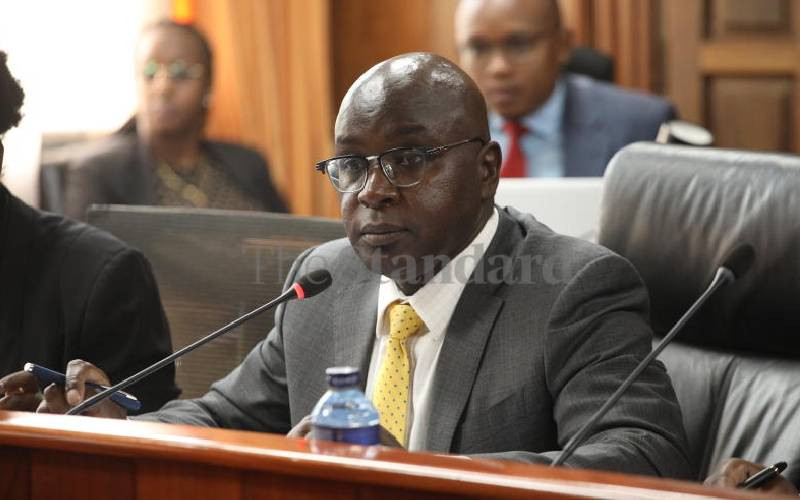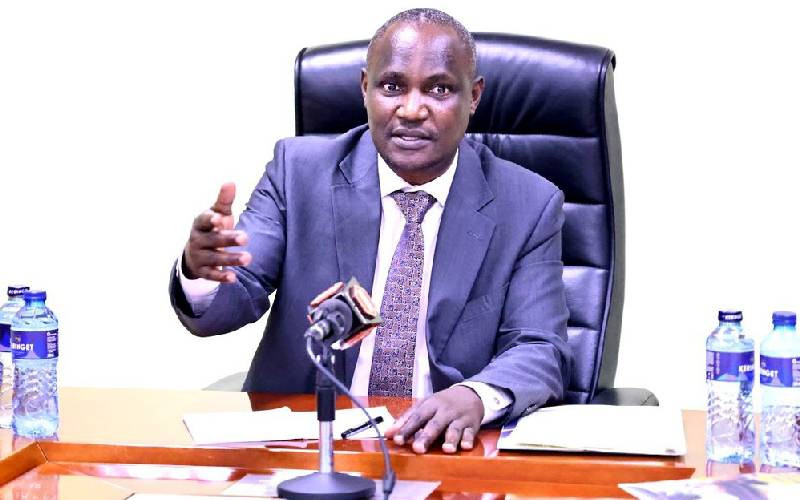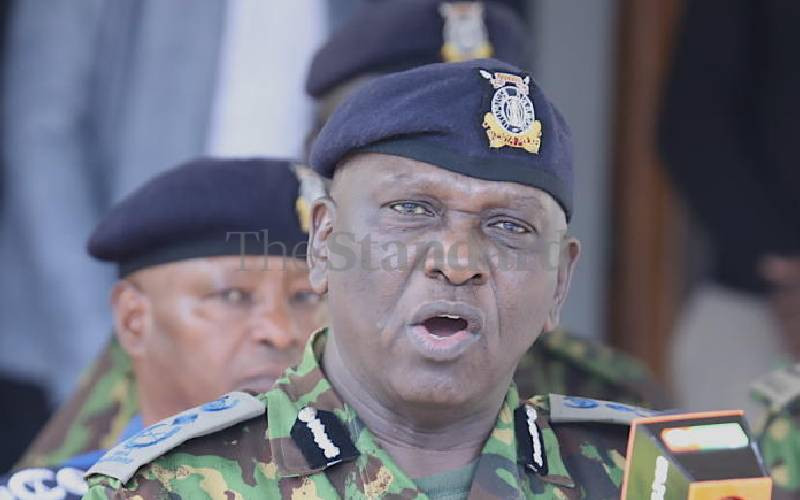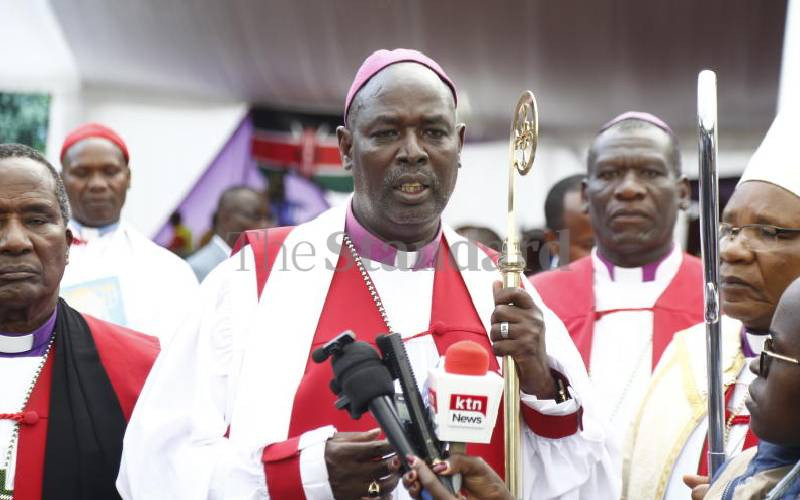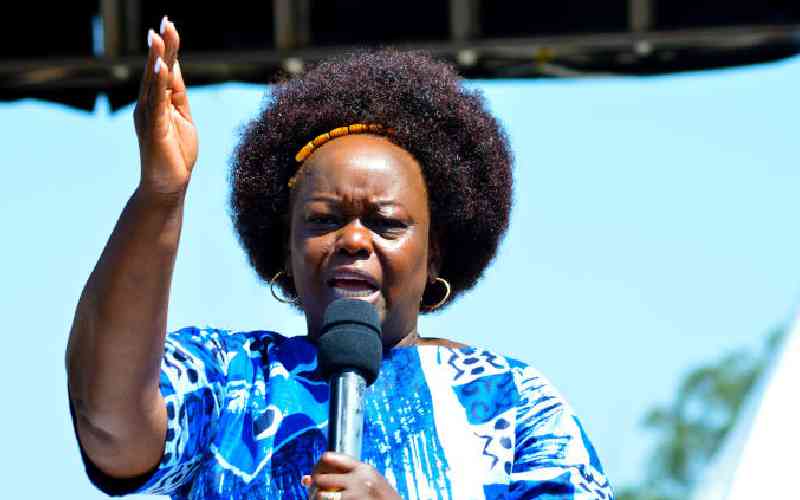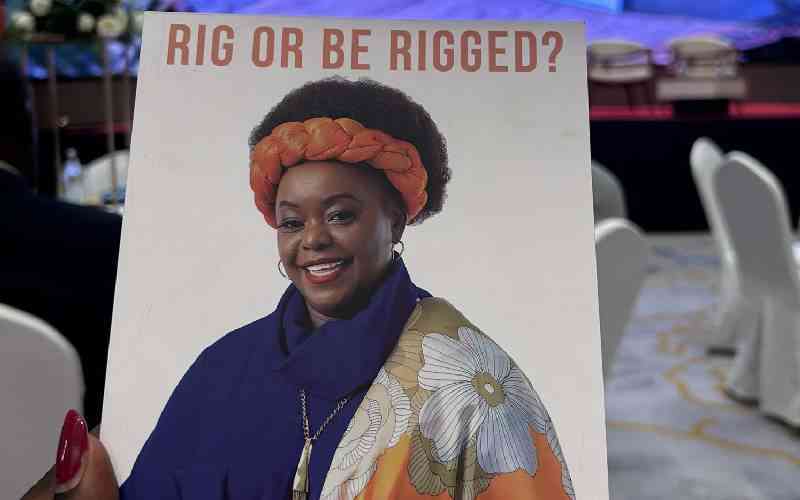By NAIROBIAN REPORTER
[email protected]
On December 11, 1994 destiny seemed to be staring at Kenya Breweries (now Tusker) with a smile. The Kenyan team had not only reached the finals of the African Cup Winners Cup (Mandela Cup), but had also secured a 2-2 draw away to Daring Club Motema Pembe of Zaire (now DRC). All the brewers needed in Nairobi was a goalless draw to follow in Gor Mahia’s 1987 continental glory — a rare feat for a Kenyan team.
To capture the mood of the nation, Sunday Standard had a special edition with the headline ‘Go brewers go!’ But destiny’s smile must have been a cynical one as the Nairobi team was humiliated 3-0 in front of disbelieving fans. The following day’s The Standard, just like the thousands of disappointed Nairobians that attended the match, had on its front page the headline ‘Bewitched! Motema cast a spell over Kenya as Zaire bring their Jujuman’ by way of explaining the loss.
The story read, in part: “A medicineman helped Zaire’s Daring Club Motema Pembe humiliate Kenya Breweries 3-0 to win the coveted Nelson Mandela Cup at the Nyayo National Stadium yesterday.
“Escorted by two lieutenants, the ‘jujuman’ went round the stadium pounding strange looking drums to the charging of Kenyan fans, who felt he was up to no good. Ironically the ‘jujuman’, whose face was painted with ash, escorted the referees to the changing rooms, a very unusual happening in international matches.”
The events of that day have continued to haunt Tusker to date. Onyonyi Kasuja, a former Gor Mahia treasurer and ardent football fan, says the ‘Motema magic’ was the climax of witchcraft in football.
“Whoever thinks this is not happening in the local game is actually not in touch with events in the game,” says Kasuja. “How do you explain the recent show by Tusker FC and AFC Leopards when they refused to use the allocated dressing rooms? The story was that each team believed that the dressing rooms were bewitched by the other.”
K’Ogalo-Ingwe clash
Witchcraft and superstition have been twin pillars of the local game, particularly when it involves veritable giants Gor Mahia (K’Ogalo) and AFC Leopards (Ingwe). The latest K’Ogalo-Ingwe clash scheduled for the May 11-12 weekend may not be any different.
City derbies involving the pair are normally must-win games and the teams go to great lengths to ensure victory. If you thought ‘team doctor’ was a reference to a medic then you ain’t seen nothing yet. And the ‘research’ or ‘miscellaneous’ entry in some clubs’ budgets is usually thought to be set aside for the supernatural help.
Tales have been told of some officials consulting ‘team doctors’, who hire dead bodies from the mortuary, which are brought to the stadium to ‘cleanse’ the pitch on the night before a match.
Last year, for example, the corpse of baby was ferried to Nyayo Stadium on the morning of a heated derby, which ended in fracas after a Gor Mahia player was shown the red card.
Players are also often reportedly taken to witchdoctors for ‘treatment’ that may involve being cleansed and instructed on how to conduct themselves before or during games.
Stay informed. Subscribe to our newsletter
Superstition is normally at an all-time high before such derbies and sometimes a team that comes into the field first may refuse to use the same gate as the opponent for fear of being affected by charms.
There have also been instances of teams refusing to use the ‘away’ dressing room at half time.
A well-known coach of a team in the Kenya Premier League sponsored by a corporate is also said to often force his players to put on clothes that had been soaked in ‘treated’ urine the previous night.
One of Gor Mahia’s long-serving team officials while speaking to The Nairobian on grounds of anonymity says the team must always visit the Kanyamwa shrine where the late Gor Mahia was buried at the beginning of every season.
“During the visit, there are a number of events and rituals that are performed to the players for the sake of prosperity,” says the official.
The Gor official says in 1987 two club officials, a player and a renowned fan visited Isabella Muga aka ‘Bim Nyajuola’ (now deceased) from Asego Kanyada (Homa Bay) to help them earn the famous victory and continental glory at the expense of Tunisia’s Esperance.
“It is believed that Bim Nyajuola’s magic helped us win the cup after a number of sacrifices,” he says.
Tom Mboya statue
And in Gera village, Mbita constituency, there lives the feared Ogweno Kamnyama, a blind man, who supposedly has the power to foretell the match results. More importantly, our source claims, he can ‘fix’ matches by altering the ‘original’ results to the desired ones.
Pastor Gerishon Odare of the city’s Hosanna Gospel Assembly, who says he is related to Ogweno, says the medicine man sometimes travels to Ngara in Nairobi to help Gor’s cause.
Gor Mahia fans have lately formed a habit of singing all the way from the stadia to the Tom Mboya statue at the City Centre. One of the cheerleaders, Bonte Kochieng, says these are always moments of reflection.
“We owe it all to Mboya. The statue symbolises the Mboya spirit, so we pay pilgrimage. For a win, we go there to thank him. But whenever we lose, it’s a moment of meditation and reflection,” he says.
A long-serving K’Ogalo fan, Dan ‘Wuod Ruoth’ Oketch, recalls a church sermon that a few years ago claimed there were evil forces in football.
“How does one explain the act of 22 energetic and able men chasing the skin of an animal with thousands cheering them on?” the pastor reportedly asked.
What’s in a name?
Rev Pastor Gerishon believes every name has a purpose and significance. He, for example, says teams like Gor Mahia (named after a Luo medicine man) and Harambee Stars (derived from the name of Hindu gods), cannot prosper as they are held in bondage by the evil spirits they invoke.
The common distortion of Christian tunes to suit the praises of teams like Sofapaka, K’Ogalo and Ingwe will obviously not impress the pastor.
Even though it is difficult to prove the power and reach of witchcraft in local football, perceptions of its use linger.
 The Standard Group Plc is a
multi-media organization with investments in media platforms spanning newspaper
print operations, television, radio broadcasting, digital and online services. The
Standard Group is recognized as a leading multi-media house in Kenya with a key
influence in matters of national and international interest.
The Standard Group Plc is a
multi-media organization with investments in media platforms spanning newspaper
print operations, television, radio broadcasting, digital and online services. The
Standard Group is recognized as a leading multi-media house in Kenya with a key
influence in matters of national and international interest.
 The Standard Group Plc is a
multi-media organization with investments in media platforms spanning newspaper
print operations, television, radio broadcasting, digital and online services. The
Standard Group is recognized as a leading multi-media house in Kenya with a key
influence in matters of national and international interest.
The Standard Group Plc is a
multi-media organization with investments in media platforms spanning newspaper
print operations, television, radio broadcasting, digital and online services. The
Standard Group is recognized as a leading multi-media house in Kenya with a key
influence in matters of national and international interest.

